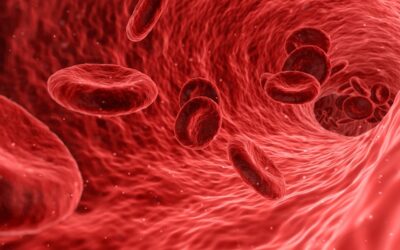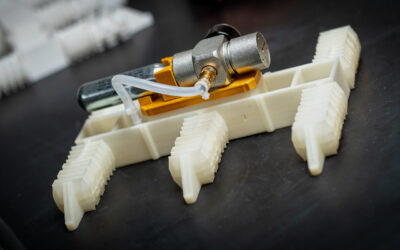A study to investigate how nanoparticles could be used to improve the diagnosis and treatment of cardiovascular disease has received £3 million funding.
The project, led by the University of Strathclyde and involving researchers from the Universities of Glasgow and Warwick, is being supported by the Engineering and Physical Sciences Research Council (EPSRC).
Principal Investigator Professor Duncan Graham, Director of the Centre for Molecular Nanometrology at the University of Strathclyde, said: “Cardiovascular diseases cause more than a quarter of all deaths in the UK each year, and death rates from coronary heart disease are highest in Scotland.
“Estimates suggest the UK spends nearly £2 billion each year on healthcare costs of treating coronary heart disease – our research combines nanotechnology with advanced statistical and biomedical research, focused on a clinical application which we hope will lead to a beneficial change in treatment of cardiovascular disease patients.”
The research team will investigate atherosclerosis-related cardiovascular diseases (CVD), which are the leading cause of mortality in UK.
Currently, the risk of atherosclerosis in patients is identified by detecting specific inflammatory markers in the blood. However, atherosclerosis is characterised by inflammation localised in vessel walls and the researchers suspect it may be more beneficial to quantify vascular inflammation and to develop a method of delivering drugs directly to the diseased vessel.
To this end, the researchers will use nanoparticles – small metallic particles which can be tagged onto other molecules which possess the ability to recognise inflammatory markers. The nanoparticles can then be detected by a technique called surface enhanced Raman scattering, whereby a light source is shone on the nanoparticles, transferring energy and causing them to vibrate.
The vibrations are detected and the strength of the signal provides an indication of the amount of nanoparticles – and therefore inflammatory markers – present.
Dr Pasquale Maffia, senior lecturer in immunology at the University of Glasgow, said “Using this nanoparticle technology, the primary aim of the research is to develop a highly-sensitive but relatively affordable means of measuring inflammatory molecules in samples of atherosclerotic plaque from patients which could enable the clinician to forecast how the disease will progress.”
It is hoped in the future that the nanoparticles can be further customised to enable the delivery of anti-inflammatory drugs.
Dr Maffia added: “The energetic vibrations could be harnessed as a drug release mechanism which could be time-controlled by the flick of a switch. The major advantage of this set-up is that the equipment is portable, so this novel nanoparticle diagnosis and treatment system could potentially be made accessible to anyone.”
The funding award is part of the EPSRC Healthcare Technologies theme which plays a vital role in sponsoring basic research capabilities to create new techniques and technologies to address national and global health challenges.
The team involved in the project are: Professor Duncan Graham and Dr Karen Faulds, University of Strathclyde; Dr Pasquale Maffia, Professor Naveed Sattar, Professor Iain McInnes and Professor Paul Garside, University of Glasgow; and Professor Mark Girolami of the University of Warwick – a composite of physical scientists who are specialists in nanoparticle technology, information technologists capable of interpreting and presenting data from complicated nanoparticle assays and clinical partners who are interested in how best to utilise this new information in improved healthcare practice.
Source: University of Strathclyde
















